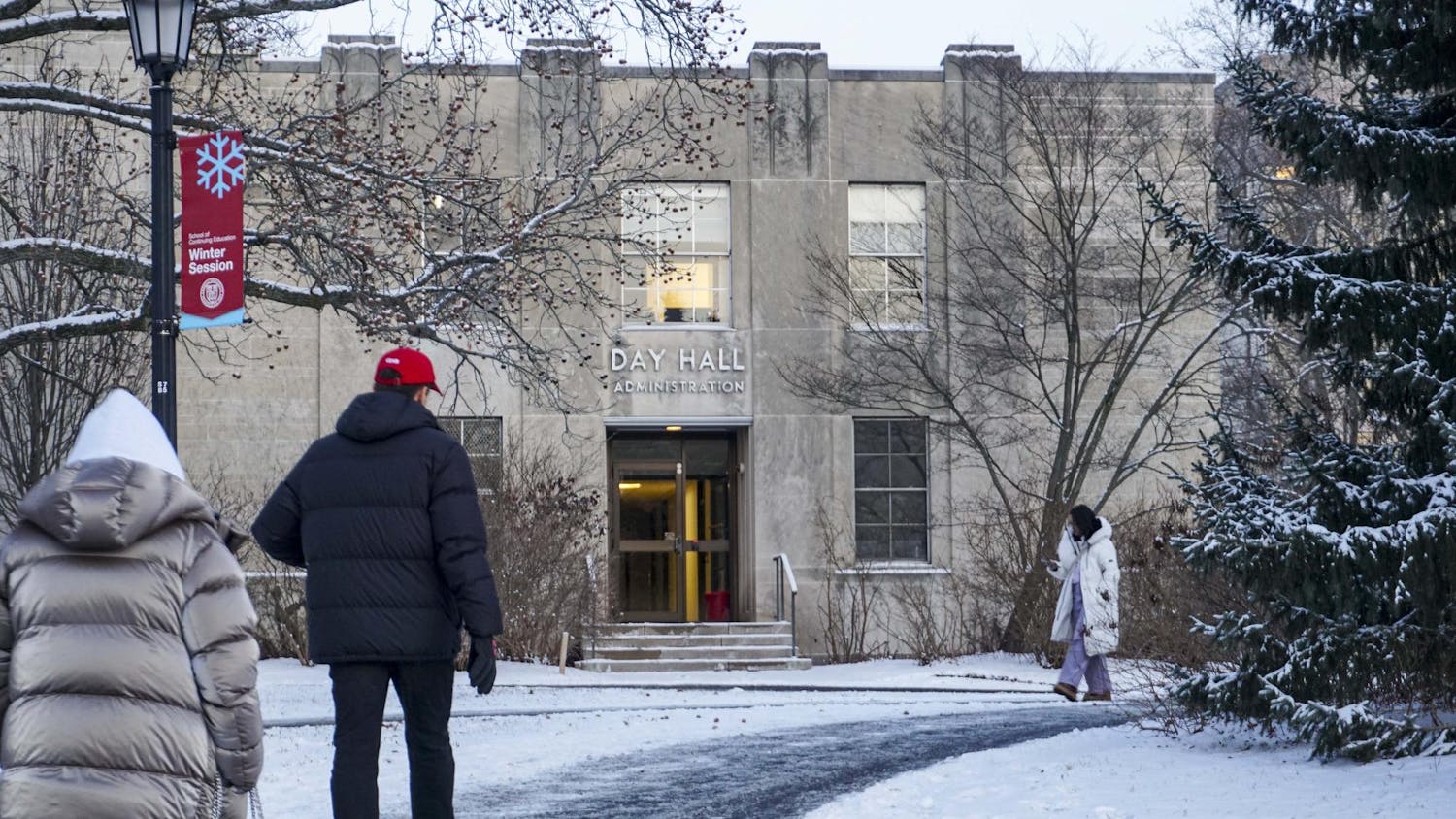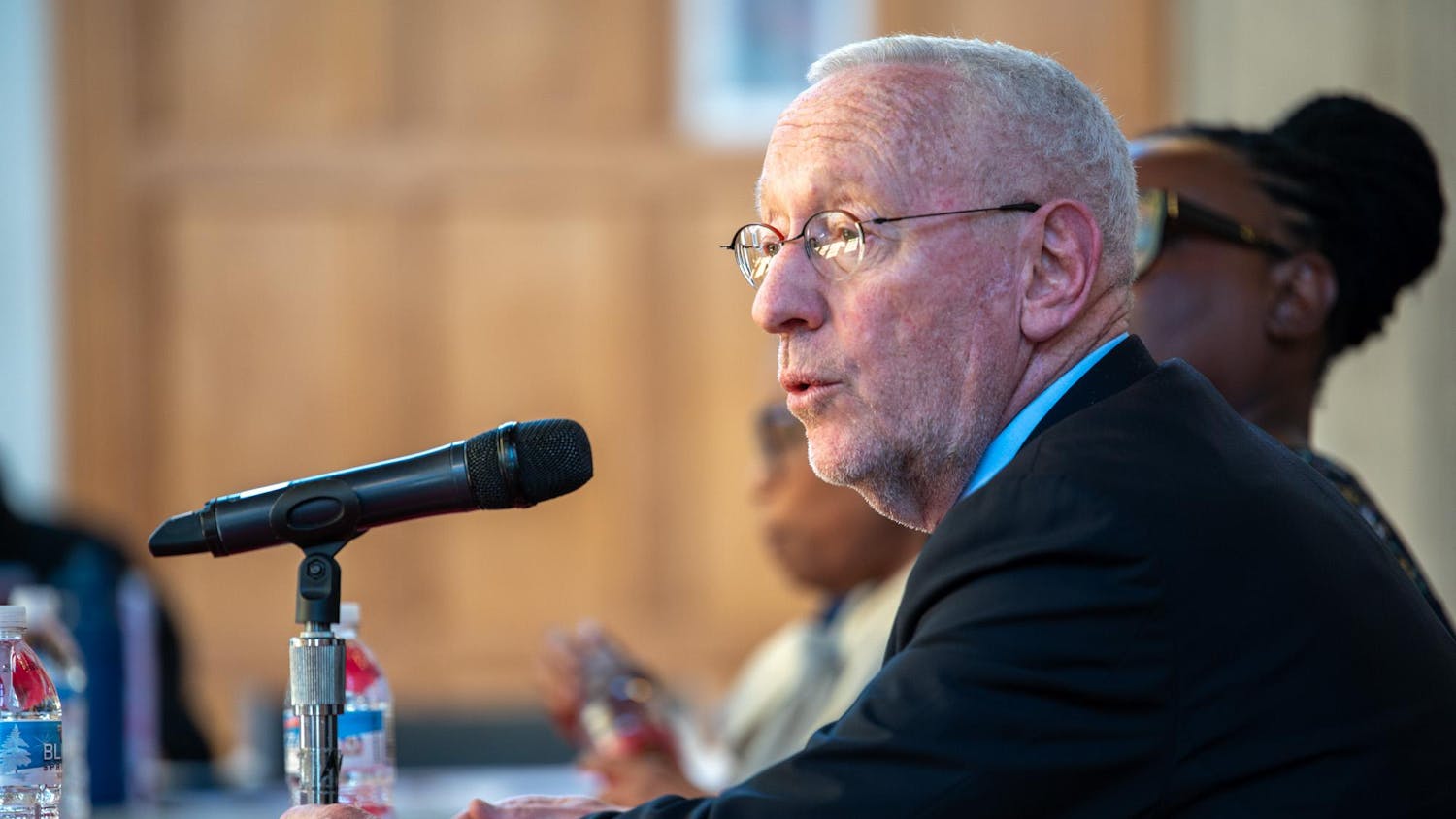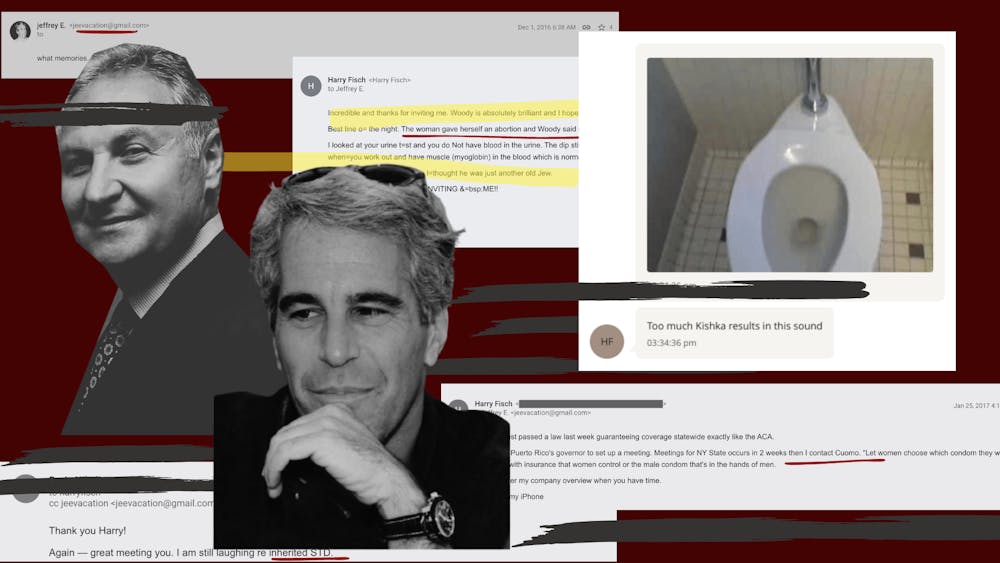Prosecutors preparing to try John Greenwood ’20 — the white Cornell student who a black student said beat him and called him the N-word — will present grand jurors with the New York hate crime law and let them decide whether to charge Greenwood under the statute, the county’s district attorney told The Sun.
Matthew Van Houten, the Tompkins County district attorney, said on Sunday night that prosecutors will read the descriptions of at least three potential charges, as well as the state hate crime law, to grand jurors and leave the decision up to the “impartial body of citizens from the community.” Prosecutors will subpoena witnesses and present all available evidence to the grand jury on Oct. 5 or Oct. 12, the district attorney said.
The decision to wait for the grand jury to determine whether hate crime charges apply, rather than having Ithaca Police charge Greenwood under the state hate crime law now, seemingly created a slight rift between the district attorney's office and City Hall.
Ithaca Mayor Svante Myrick ’09 said in an interview late on Sunday that he believes the victim was targeted because he is black and said Greenwood, who is 19, should be charged with a hate crime.
“As somebody who’s had the opportunity to review the investigation, speak with our investigators and review the hate crime statutes, I believe this was a hate crime,” Myrick said. “If it were up to me, I would charge it as such.”
“We’ll follow the lead of the district attorney because this is the way the system works,” Myrick added.
Van Houten said that if police were to charge Greenwood under the hate crime law now, a grand jury would still have to indict the student under state law because the charges would be felonies. It makes more sense, he said, to simply present the evidence to grand jurors and let them decide once.
“There’s just no reason for the police to add more charges,” Van Houten told The Sun. “Adding charges by the police would be completely superfluous.”
The student who said he was assaulted, a junior and Kappa Sigma member, spoke to The Sun from a local hospital on the condition of anonymity on Sept. 15, the day he says he was punched multiple times by a group of white men in Collegetown. He was returning to his house on Eddy Street early that morning, he said, and attempted to break up a fight in his lawn.
The junior told the people he did not know to leave his property, and they began yelling expletives and the N-word at him as they walked away from his house, he said. When the student confronted them in front of their house, he said, they began hitting him in the face, leaving him dizzy and covered in blood, he and witnesses said.
“I was pretty bloodied up,” he told The Sun from Cayuga Medical Center, where he said medical personnel ruled out a broken nose and concussion.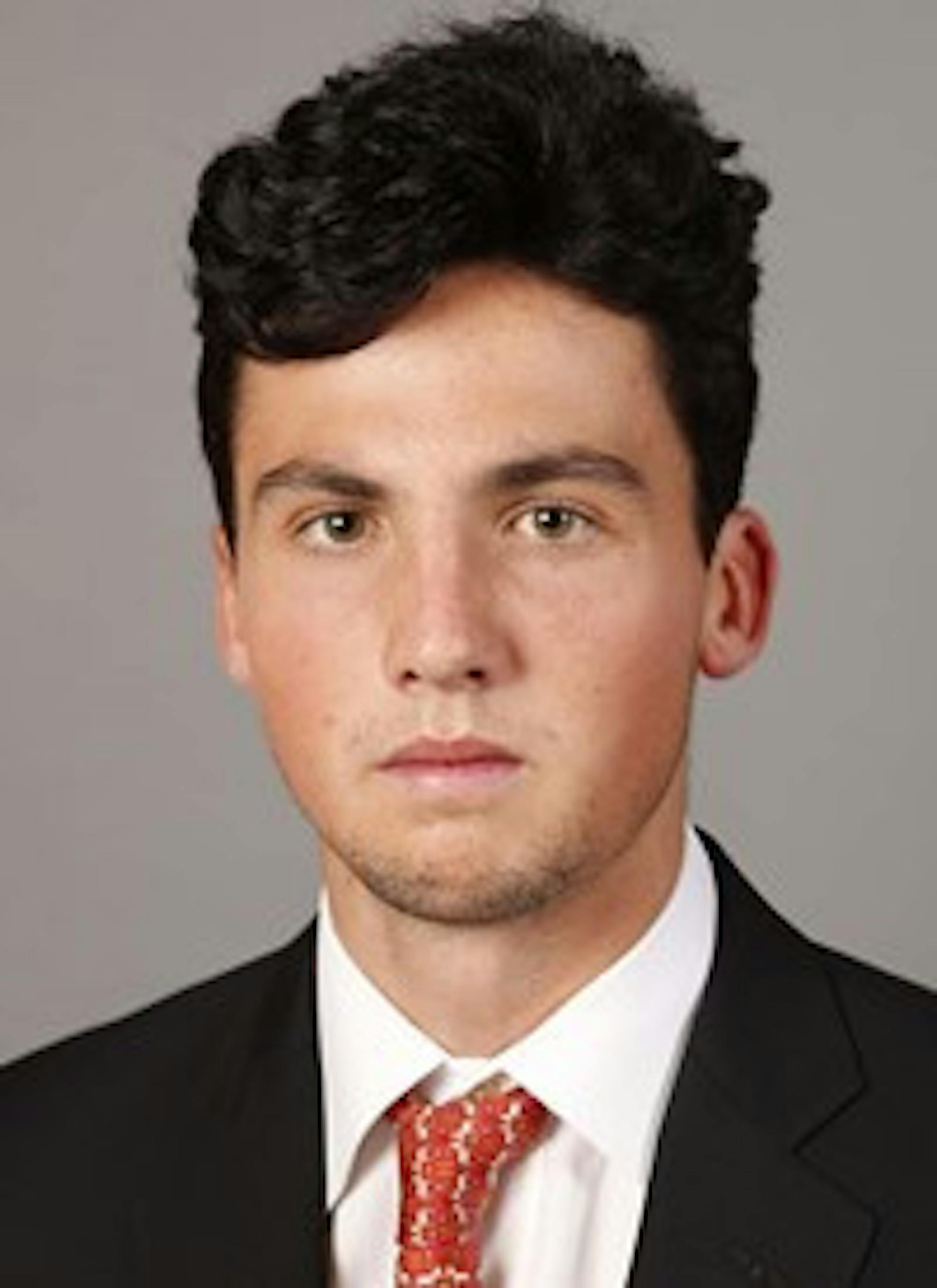
Police have charged Greenwood with two misdemeanors, aggravated harassment and assault. Van Houten said he will also present the criminal mischief statute because Greenwood allegedly attempted to take the phone of a student who had recorded him.
Van Houten said he plans to leave what he called a “complicated and controversial” decision up to members of the community. The district attorney also said Greenwood wanted to speak to police at one point, and that he would like that to happen, if possible.
If at least 12 grand jurors decide there is “reasonable cause” that Greenwood targeted the student or committed any crime “in whole or in substantial part” because of a belief or perception regarding the student's race, Greenwood would be indicted for a hate crime, under the New York Hate Crimes Act of 2000.
Under that act, the level of a crime is elevated by one notch if it is deemed a hate crime. In this case, the misdemeanor assault and aggravated harassment charges could become Class E felonies if they are deemed hate crimes by the grand jury. Each Class E felony, upon a conviction, could bring up to four years in prison.
Grand jury proceedings are secret in New York, and even prosecutors will not be in the room as the grand jury, which consists of between 16 and 23 people, deliberates. At least 12 of those people will have to agree there is “reasonable cause” to charge Greenwood with any crime for the student to be indicted. Greenwood's attorney, Ray Schlather J.D. '76, did not immediately respond to a request for comment.
The Collegetown assault sparked a series of protests by students in the last week, culminating in an occupation of Willard Straight Hall on Wednesday led by Black Students United after the group delivered a list of 12 demands to President Martha Pollack, who has also released a plan to address “persistent problems of bigotry and intolerance at Cornell.”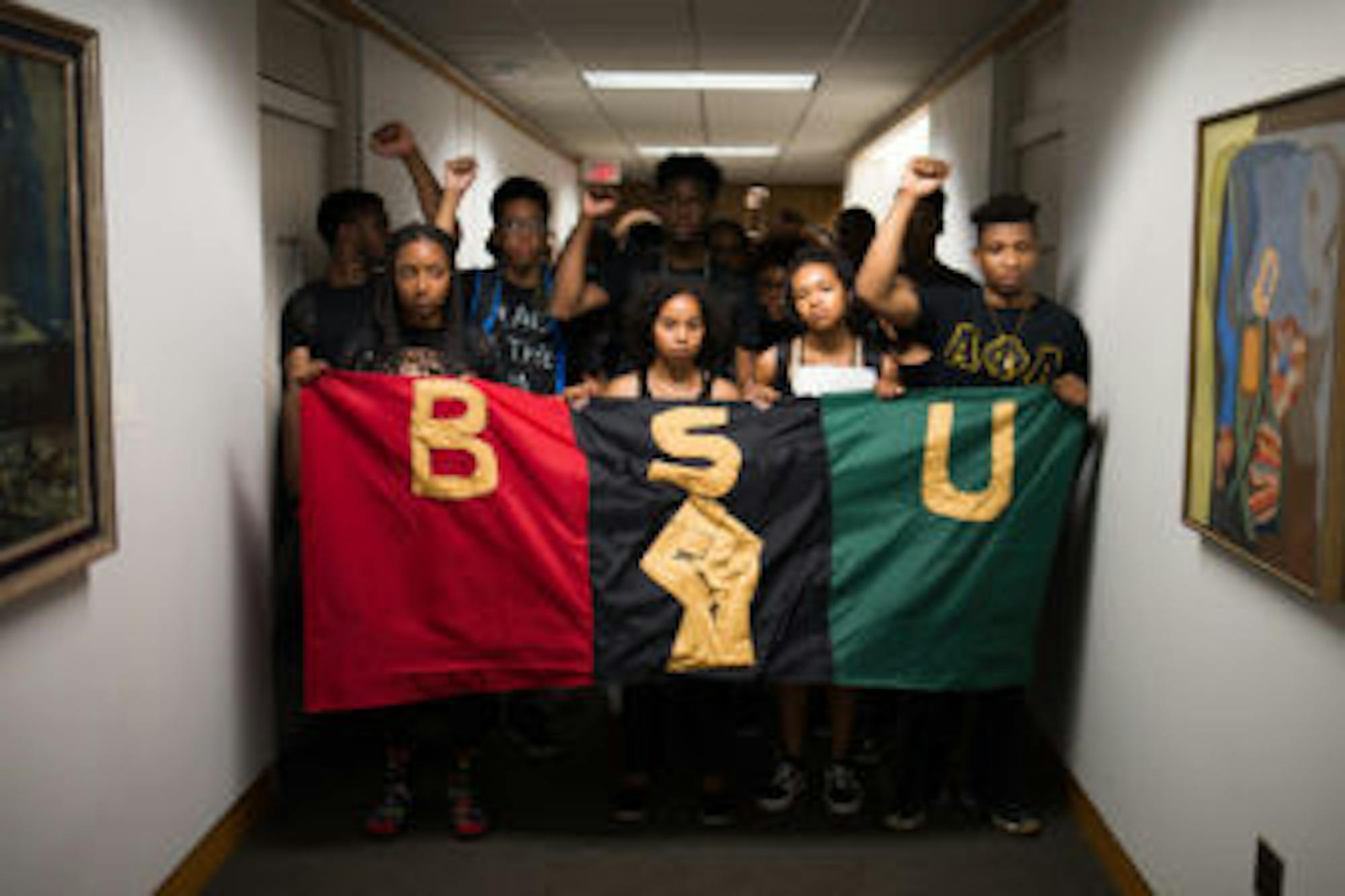
Van Houten said he expects the grand jury to take its time deliberating the possible charges because of how complicated the case is and how much is necessary to charge someone with a hate crime.
Ithaca Police have done “a lot of work” and “collected a lot of information” regarding the altercation, Van Houten said, adding that his office has been communicating with police and is trying to “make sure we’re doing this the right way.”
Despite police efforts, some people involved in the assault “may not ever be identified,” Van Houten said, “because they don’t necessarily have cameras anywhere or the ability to identify people in one of the frats.”
The assaulted student told police that the aggressors were “neighbors” who had been shouting the N-word multiple times. “Several of them advanced on me and started hitting me,” he told police, “mostly in the face.”
The victim told police that one of the men who attacked him had been wearing a white shirt, and another witness said she saw a man in a white shirt yell the N-word at the student.
A video obtained by The Sun shows a man in a white shirt, who appears to be Greenwood, calling a different student the N-word multiple times. A witness to that incident, who spoke to The Sun on the condition of anonymity, said Greenwood is the man in the white shirt and said the verbal exchange occurred 30 minutes to an hour after the physical altercation.
Myrick said he believes the Cornell junior was assaulted either wholly or in substantial part because he is black and believes the assault was a hate crime, but will leave the case in Van Houten’s hands.
“The district attorney will do what he thinks is right,” Myrick said.
Drew Musto ’19 contributed research to this story.

Prosecutors to Present Hate Crime Law to Grand Jury in Collegetown Assault Case
Reading time: about 7 minutes
John Greenwood '20 was arrested for two misdemeanors following an altercation in Collegetown.
Black Students United, led by co-chairs Traciann Celestin '19 and Delmar Fears '19, center, march through Day Hall prior to delivering a list of demands to Cornell President Martha Pollack and occupying Willard Straight Hall on Wednesday, Sept. 20, 2017.
Read More


